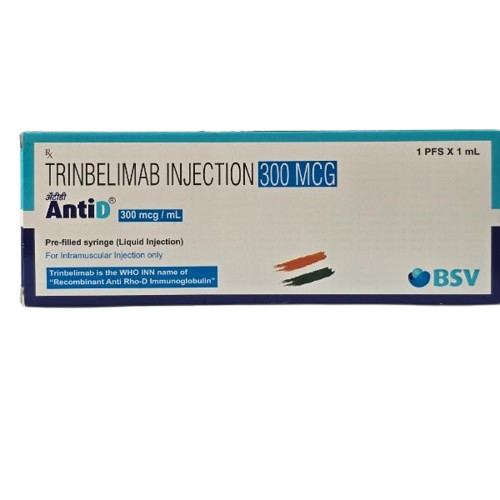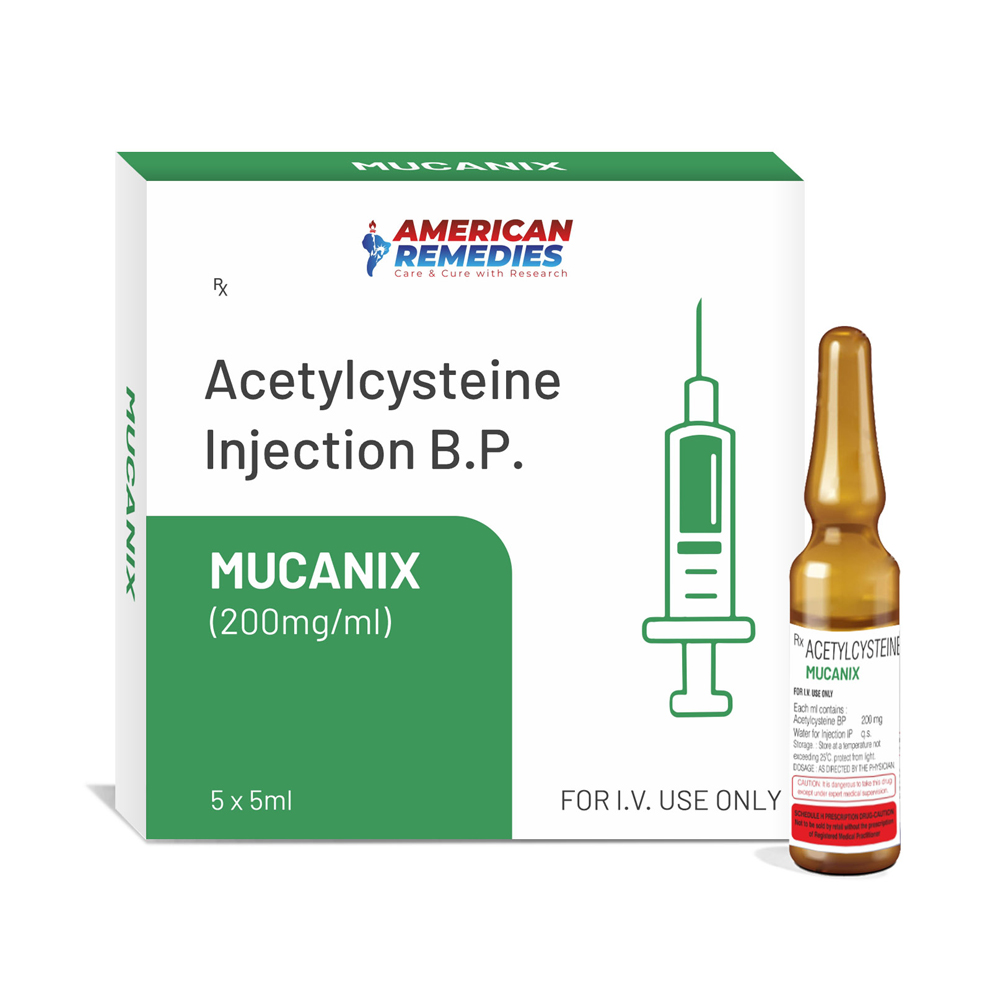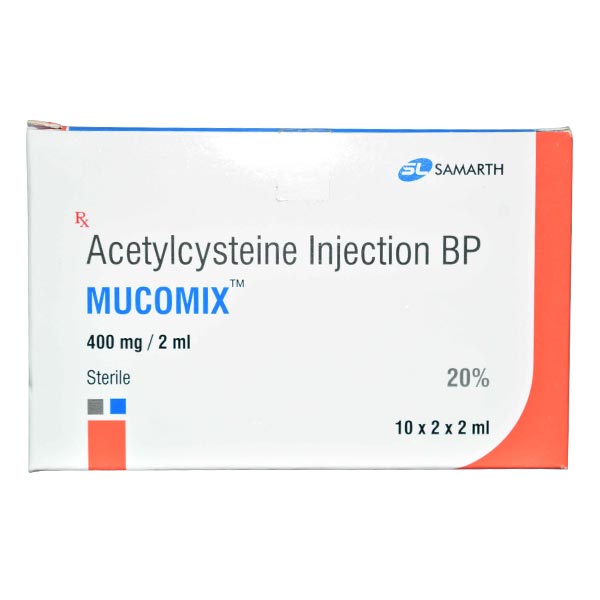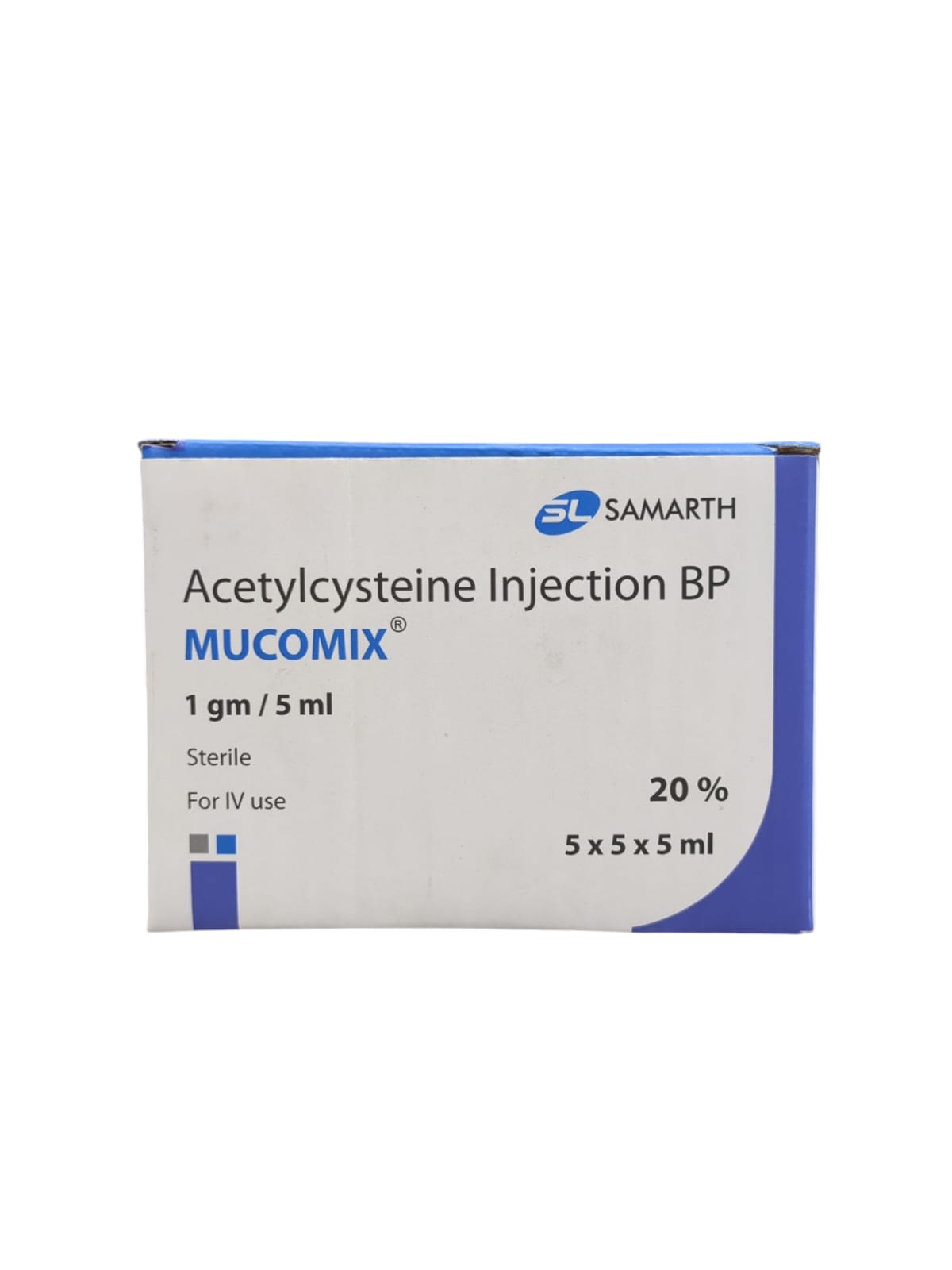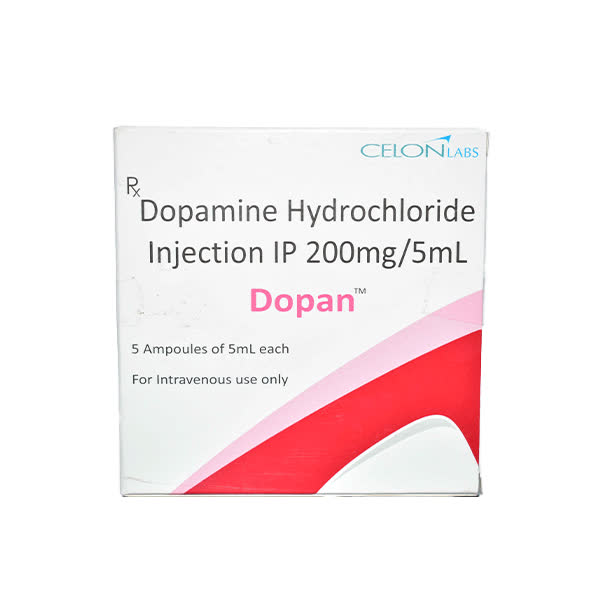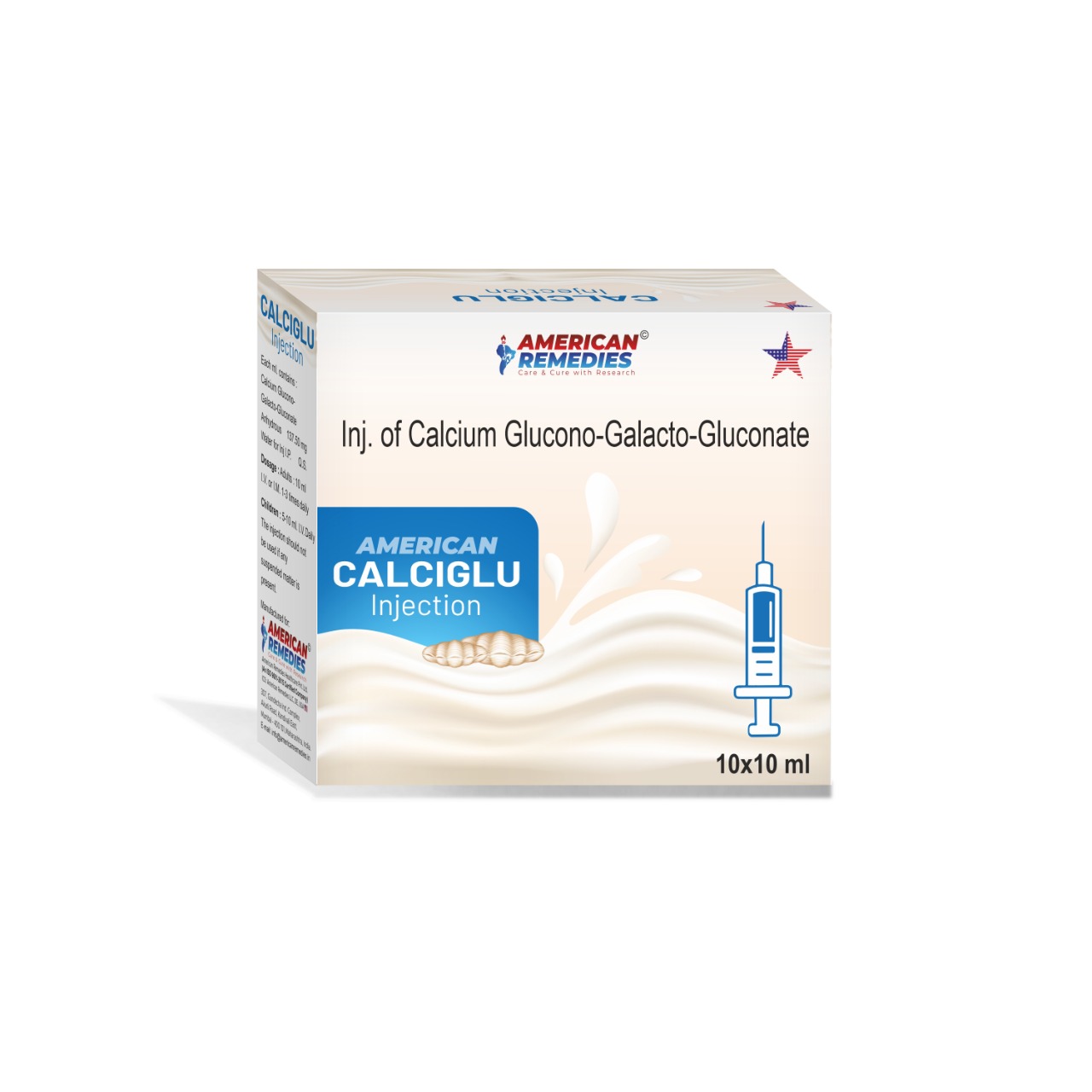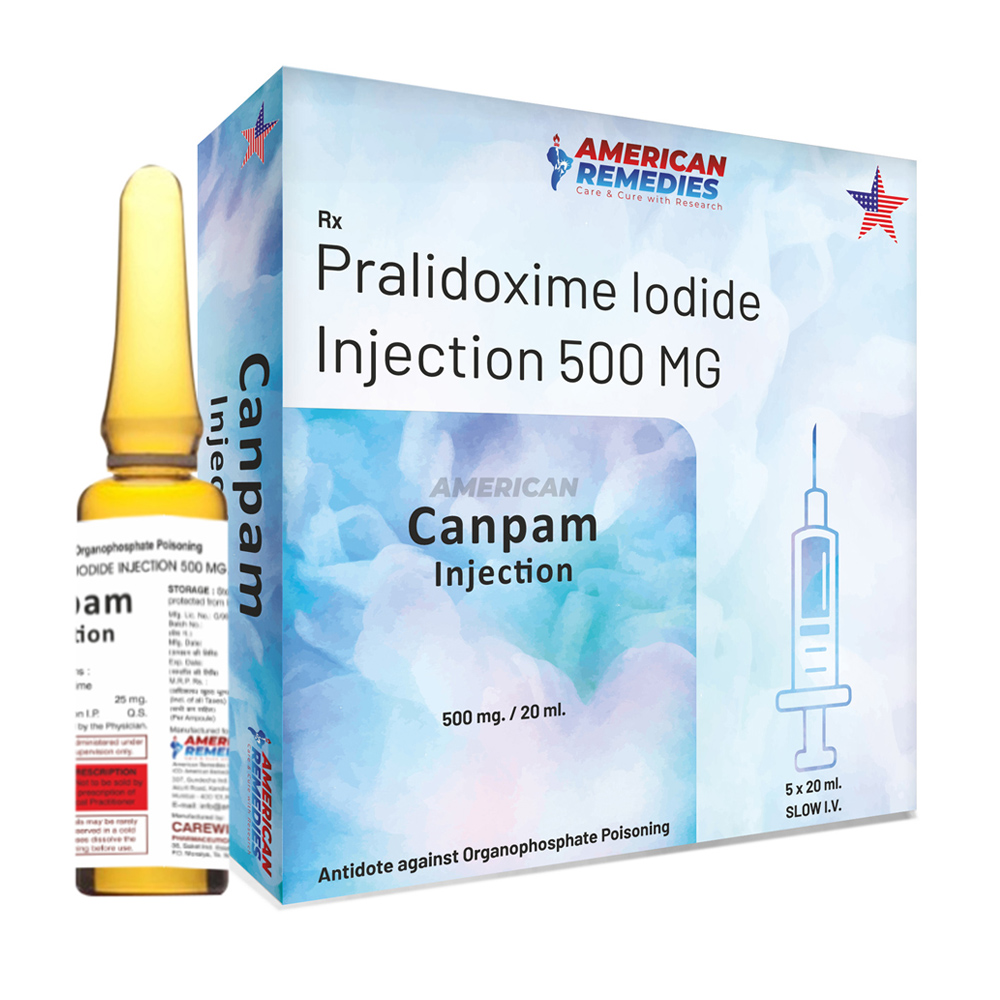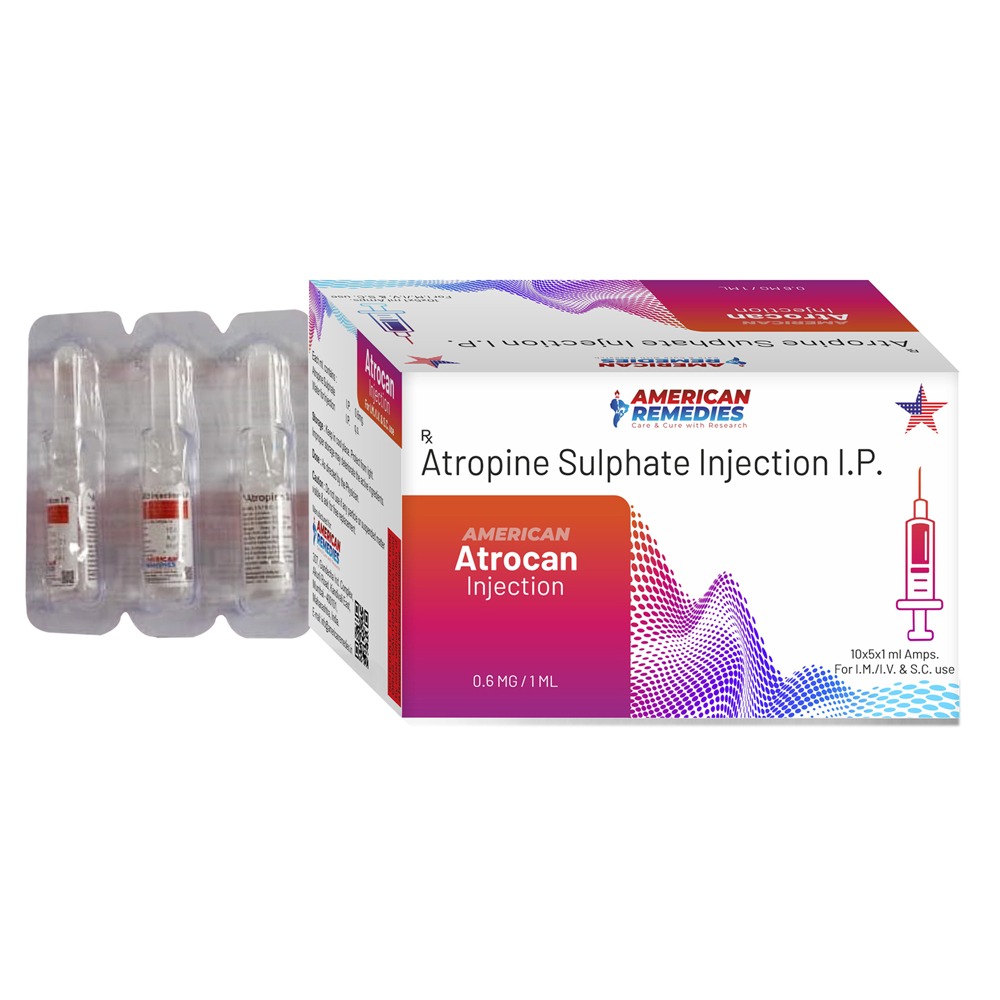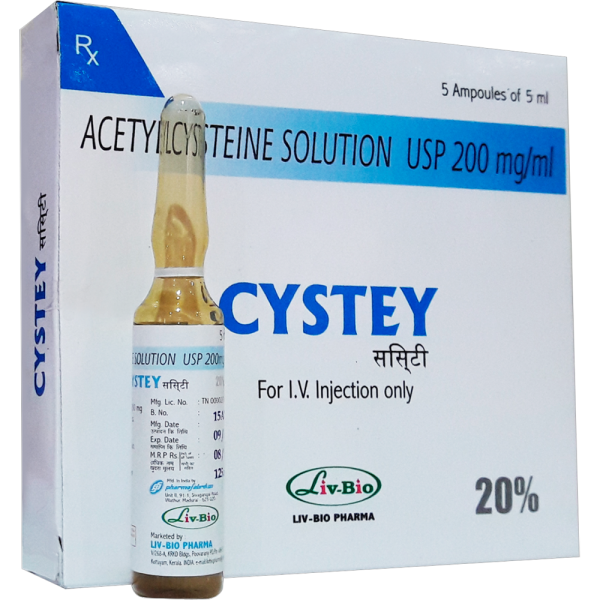Heart Disorder
Dopan 200mg Injection
Salt Composition : Dopamine Hydrochloride
Manufacturer : CELON LABORATORIES LTD
Introduction to Dopan 200mg Injection
Dopan 200mg injection contains the active ingredient Dopamine hydrochloride. It is used to treat low blood pressure and helps improve the muscle contraction strength in the heart. It also aids in improving low blood pressure due to open heart surgery, injury, congestive heart failure, heart attack, blood poisoning, and infection.
Inform your doctor before using Dopan 200mg injection if you are pregnant or breastfeeding, if you have heart problems, liver or kidney problems, sulphite sensitivity, a tumor, narrow-angle glaucoma, diabetes, blood disorder, hyperthyroidism, or if you have been taking antidepressants.
Headache, nausea and vomiting, palpitation, trouble breathing (dyspnoea), low blood pressure, and chest pain are common side effects seen with the use of Dopan 200mg injection.
Uses of Dopan 200mg Injection
In treating low blood pressure or shock due to heart attack, trauma, or injury
In treating low blood pressure due to blood infections or blood poisoning
To treat congestive heart failure
In combination with other treatments to treat low blood pressure after open heart surgery.
Therapeutic Effects of Dopan 200mg Injection
Dopan 200mg injection works by producing an ionotropic effect on the muscles of the heart, which causes an increase in the strength of heart muscle contractions and heart rate. As a result of this, there is an increase in blood pressure and cardiac output.
Interaction of Dopan 200mg Injection with other drugs
Inform your healthcare professional about all the medicines you take, including prescription medications, over-the-counter medications, nutritional and vitamin supplements, and herbal products. Certain medications belong to Tricyclic antidepressant drugs, and interacting with Dopan 200mg injection may reduce effectiveness by causing undesirable side effects.
More Information about Dopan 200mg Injection
Keep Dopan 200mg injection out of the reach and sight of children.
Do not store above 25°C.
How to consume Dopan 200mg Injection
Dopan 200mg injection is administered as an intravenous infusion into the vein. If this injection is recommended for you, it will be given by a healthcare professional. Do not self-administer. Your physician will choose the dosage and administration frequency based on the medical condition because it differs for each person.
Safety Advices for Dopan 200mg Injection
Image Not Available Pregnancy
If you are planning a pregnancy or think you may be pregnant, inform your doctor. Dopan 200mg injection might be unsafe during pregnancy because it can harm the unborn baby.
Image Not Available Breast Feeding
Inform your doctor in case you are breastfeeding since it is unknow whether Dopan 200mg injection is good for breast milk or not.
Image Not Available Lungs
It is unknown whether Dopan 200mg injection is safe for lung conditions. So consult your doctor in case you have any lung disease before starting the treatment.
Image Not Available Liver
Inform your doctor in case you have any liver diseases before starting treatment with Dopan 200mg injection.
Image Not Available Alcohol
It is unknown whether consuming alcohol while taking a Dopan 200 mg injection is safe. Please speak with your physician.
Image Not Available Driving
Instructions for driving are not applicable as Dopan 200mg injection is administered at the hospital.
Side Effects of Dopan 200mg Injection
Side effects are unwanted symptoms caused by medicines. Even though all medicines cause side effects, not everyone gets them.
Send Message
